Ladies in colourful outfits enjoyed the high tea morning hosted by the DBSA
High tea honoured women from all walks of life
To end off the month of August, the Gender Mainstreaming Committee of the Development Bank of Southern Africa (DBSA) hosted a Women’s Month roundtable, celebrating the unsung heroes of the organisation. These women have overcome a variety of immense challenges both in their personal and professional lives, and stand as examples of resilience and success in the community.
The DBSA is focused on promoting economic growth and regional integration for sustainable development across the country and the region and has been a government-owned development finance institution since 1983.
Ladies in colourful, floral outfits enjoyed the high tea morning and had their makeup done and photos taken. It was a joyous and upbeat event, where hard-working women got the chance to sit back and be celebrated.
One such successful woman is emerging fintech entrepreneur Tebogo Mogale, who applied for funding from the DBSA. Her digital platform, KUPI, allows users to send and receive money in rural areas via a mobile virtual banking platform and payment interface. It is powered by Khumo Katlego FinTech and works on feature phones to enable access to users who do not own smartphones or gadgets.
Mogale said of being an entrepreneur: “It’s a very lonely journey. It’s very uncomfortable, it’s exhausting for both men and women. I am so inspired in our country by so many women.”
The DBSA’s event’s theme “She is A.U.G.U.S.T” embodied this, as an anagram for the adjectives authentic, unphased, gracious, unique, strong and tenacious.
Thembisile Khoza, Gender Mainstreaming and Stakeholder Management Programme Manager at the DBSA, said: “Ladies, we celebrate you today because we believe that you are rock solid. DBSA stands because there are women who have been behind the work as engines of what we do.”
Khosa reminded those present that the current freedoms of women in the country in part rely on the sacrifices of the 20 000 women who marched to the Union Buildings in 1956 to protest the carrying of passbooks.
“I think we just need to be thankful for these women who took it upon themselves to transform the lives of all South Africans, not just women, but we are here because they took action and they decided, ‘I’m gonna do something and be counted’. We are here to basically say, let’s be those women as well.”
Zodwa Mbele, the DBSA’s Group Executive for Transacting, affirmed the need to highlight these conversations and make them applicable to the workplace, as women still experience these spaces differently than men.
“You know, it’s almost like the workplace was created for a certain type of people to thrive and you, as a woman, need to find a way to fix yourself so that you can fit in,” she said. “So the systems, the blueprint, the policies are just inherently made to make certain people thrive better than others.”
Mbele explained that women should not need to feel like they need to fix or change themselves to be able to participate in the economy fully and be represented. She warned that this needs to be seen through practical on-the-ground outcomes at all levels, such as procurement and recruitment. It needs to go beyond tokenism, such as mere gender diversity on executive boards.
“Being an executive does not mean you have achieved, the work begins right there as the boardroom battle rages on. You must challenge the stereotypes in the boardroom and ask the unpopular questions.”
While Mbele pushes for increased female presence in the boardroom, she also said that it should not be hard strategic work to put women into positions, but that this should happen naturally and on merit.
Events such as the DBSA Women’s Month roundtable serve as an opportunity to highlight this ongoing work and normalise the resilience of women across the banking and development sectors, and beyond. — Elna Schütz
Arlene Maharaj: Stepping out with courage
“I’m really here to encourage you to be bold, to speak your truth in your own way, and to live your life on your own terms,” said Arlene Maharaj.
She is now an Operations Evaluations Specialist at the DBSA, but Maharaj’s journey there was certainly not an easy one.
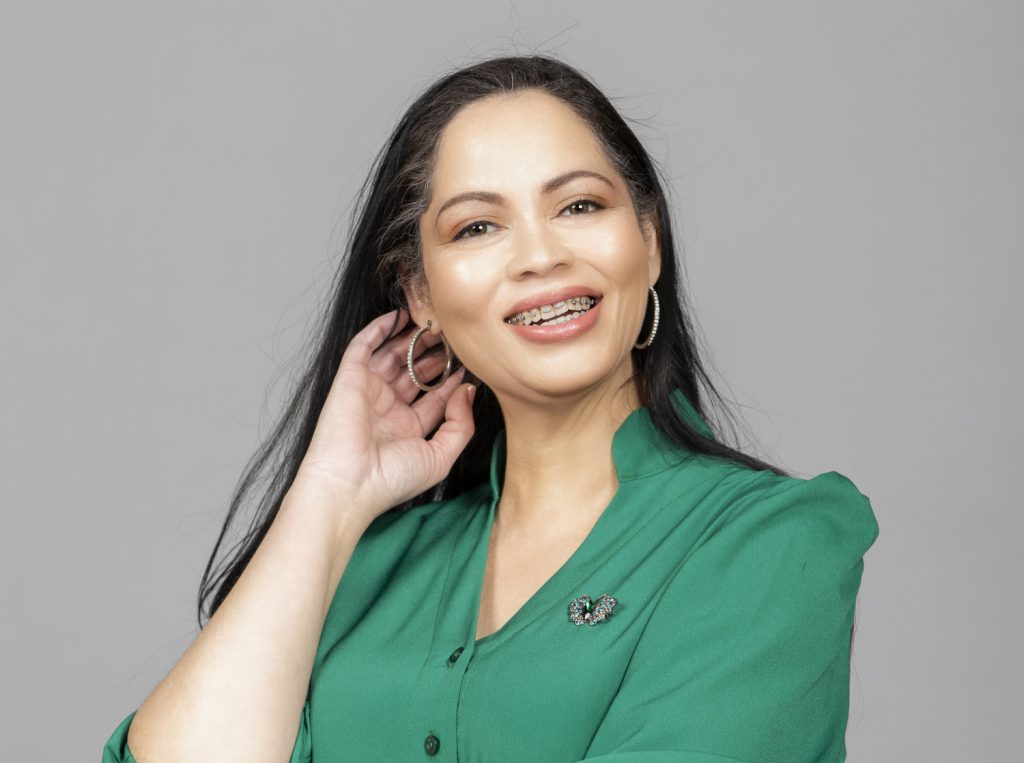
“I knew very early on in my marriage, I’m not going to be happy here, but I can’t afford to be a single mother unless I improve my education, and I make some changes, and so when the time was right, that’s what I did.“
She studied IT and started her career during the “dawn of the internet”, and stayed in the male-dominated industry for several years. “For a very long time, I was the only female in the team. But I received the same treatment, which was fair and what I wanted.”
After the birth of her second child, she felt a lot of pressure from all sides, and decided to make a change by going into the educational sector professionally. She also studied educational and industrial psychology, in part to connect with her children better and be the best mother she can be. Despite some of the steps on her journey entailing a strong pay cut, she forged ahead.
Shortly before a milestone birthday, she told herself she needed to find a better job, lose weight, and leave her 20-year marriage. “And I got this wonderful job at the DBSA five months before I turned 40,” she says. “Taking action is just the tip of the iceberg; before that, it took a lot of mental and emotional work for me to get to that point.“
This difficult process brought her to a much happier and healthier place overall, and she is now able to do a job where she feels she makes a difference. “I keep thinking that the only reason those changes were possible was because of the quiet quivering voice in the back of my head, that said ‘you deserve them, you are worthy’.”
“Part of my learning is I realise that I don’t want a frantic career,” said Maharaj. “I want just enough money, time, good relationships and good health. You know, sometimes you get swept up in the title of achievements when you’re young and ambitious.”
Balance has been a wonderful achievement for this successful woman. ”I want to encourage you to make sure that you are spending your only non-renewable resource, which is time, on something that you will want and what you really want.”
Degracia Kumalo: Staying resilient in a male-dominated sector
“It’s not easy but it is worth it. It’s a matter of understanding that you have a contribution to make,” said Degracia Lindeni Kumalo, Principal Deal Originator for the Local Government Sector of the DBSA. “Your contribution can start small, but it doesn’t matter what title you hold, know you are adding to the bigger picture.”
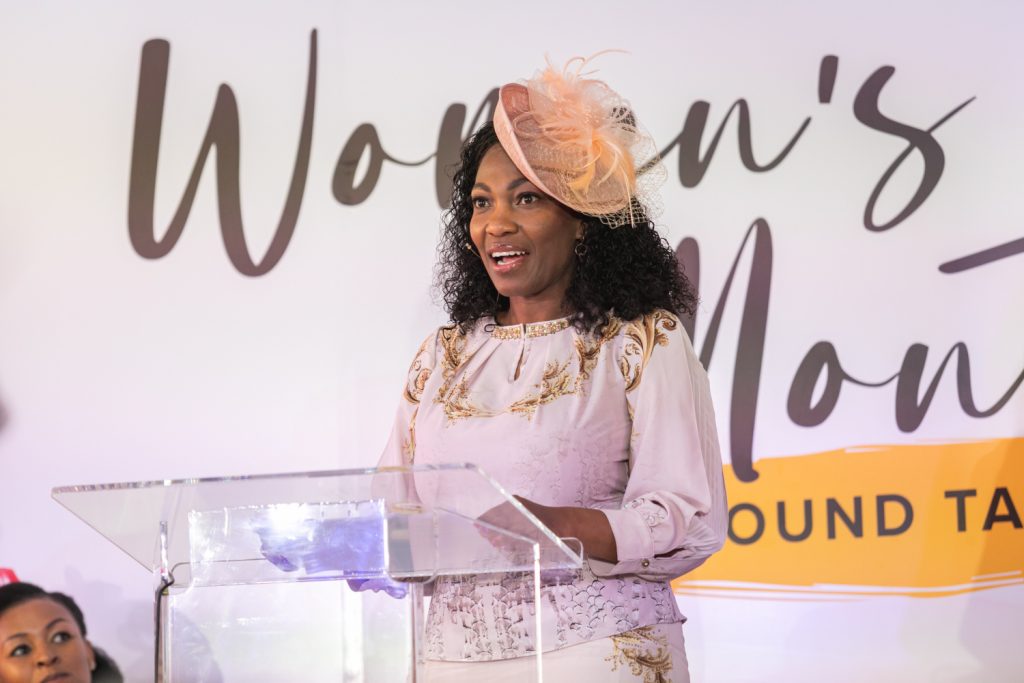
Kumalo left a promising career in commercial banking to join the DBSA because the development mandate of the bank spoke to her. “I was not really getting the fulfilment where I was and I wanted to come to a space where I can contribute. So whenever I’m faced with challenges, I remember that, for me, I’ve been gifted with the opportunity to come and contribute to a diversity of life in this country.”
She says it warms her heart when her work brings about practical change on the ground, such as bringing water or electricity to a community.
However, the male-dominated banking sector meant that she was faced with prejudices and stereotypes as a woman, that defined success, ethics, culture, and justice in that space. “We are not given the opportunity to say how our society should see the environment that we all partake in. Instead, we have to hear it from those who are dominantly sponsors of these ideas, and they get to define all these social constructs for us.”
When she joined the bank in her twenties, there were very few women in the sector and she faced pushback for being in her sector.
But, she believes that this is changing and that there may be a larger change in the future. “We are going to get to a point where the end begins to say we need to balance our management skills, our professional skills, because there are a lot of women in these previously male-dominated structures and positions.”
In the meantime, while this shift is underway, she says that it is important to persevere with hard work and confidence, and the inner knowledge that you can do it. “Be persistent and open to criticism. Know that sometimes the criticism may be unjustified and be levelled from an obviously prejudiced point, but don’t lose your focus.
“So for me, it was to say when I show up, I need to remember that I do belong and I will be a participant at the table of development,” she said. “Never give up on what you desire and what you want. Whatever you conceive, you can achieve. Let no one tell you that it is not possible, it is always possible.”
She encouraged other women in the sector to focus on upskilling themselves constantly, both through formal and informal learning. Women should find ways to exert themselves, take the opportunity to teach where there’s ignorance or illiteracy and embrace progressiveness where men are allies and appreciate their capabilities. An important part of this for her has been to build a strong support system inside of the bank and reach out for mentorship.
Thembisile Khoza echoed Kumalo: “I believe that every woman holds the power to try in any environment that you find yourself in, and whether it’s male-dominated or fraught with difficulties, you have the power within you to transcend any of them.”
Kim Sanderson: Healing from trauma as a catalyst
Kim Sanderson has worked in crisis and emergency management for a long time. She is the Business Continuity Manager at DBSA, where she has been for about 15 years. Despite her job being focused on the worst case scenario and challenges she has faced, she considers herself an eternal optimist.
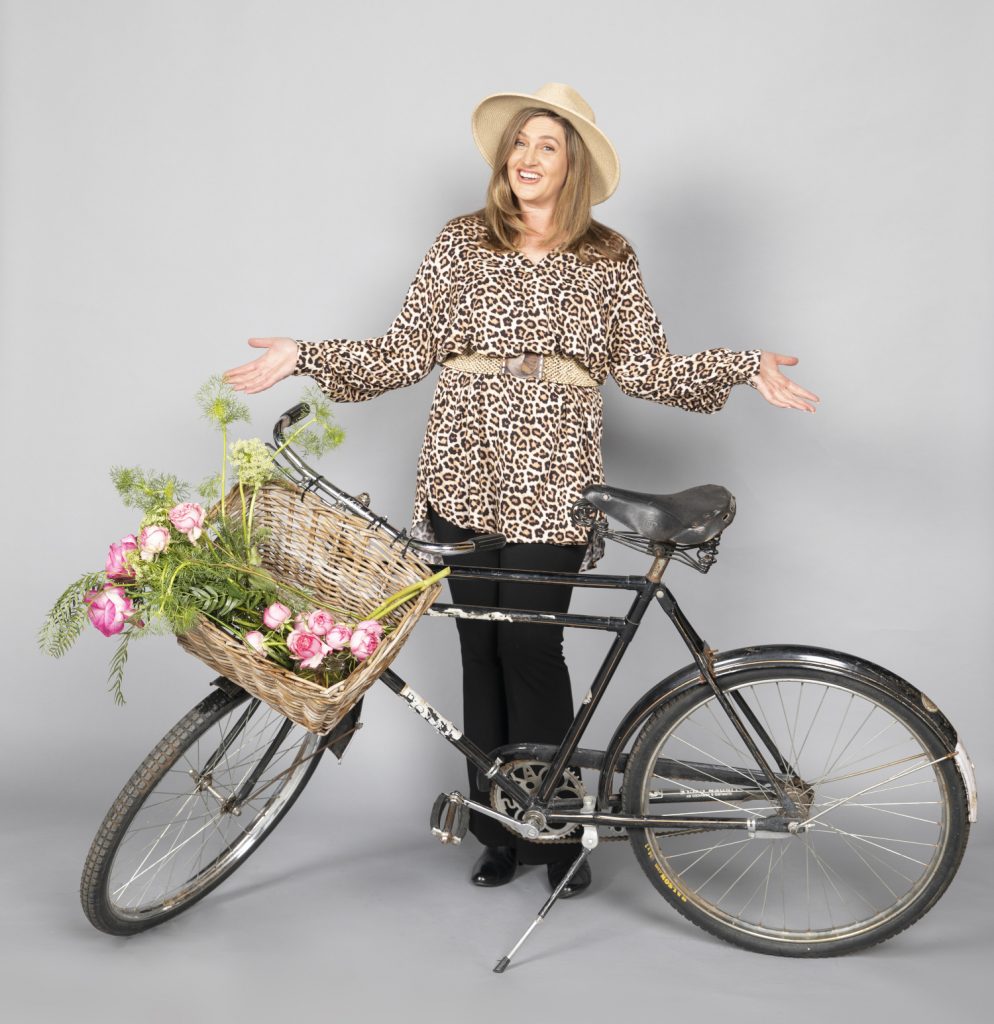
However, a key event in March 2017 changed her life and outlook significantly. She and her husband were hijacked at gunpoint and held hostage for around 15 hours.
“This particular traumatic event was one of the biggest tests for both me and my family.” Sanderson said that processing the trauma in counselling and through being present during the resulting court case has shown her how strong she is as a woman.
She said that trauma can have a fundamental impact on us and change us, but that facing this in a healthy way is key to empowering yourself. “The only way you heal is by acknowledging your trauma, acknowledging that it happened, owning the story.”
Resilience strategies, such as those taught by Lucy Hone, have been important to Sanderson to process the trauma. These include understanding that tough times are part of life. Sanderson says that she had a tough upbringing that pushed her to be able to step up and be resourceful, in difficult moments, such as during the hijacking. She explained that courage is found within and one must empower oneself.
“The fact that I was calm and could recollect my whole experience was the very reason why they were caught,” she says. “I made it my mission that they were going to get caught: they were not going to do this to anybody else.”
Secondly, Sanderson said that resilient women are good at choosing what they give attention to, such as gratefulness and positivity. “You have these things in your control, so by managing to focus on the things that you can change, and accept the things that you can’t change, you will also live an empowered life from within.”
Sanderson said that an important strategy for resilience is to ask yourself, “is this helping me or harming me?” For instance, she said that attending the court case of the people who hijacked her was helpful to her and helped her find closure. “These strategies won’t remove your pain, but they will give you the tools to face your pain.”
Sanderson is a beautiful example of how to heal by accepting that the world is imperfect, but that there is beauty to be found in the midst of this, and that self-compassion can help heal and strengthen people.
Nangamso Maponya: Taking your power back
Being bold and making yourself noticeable can be the key to achieving your dreams. A great example of this is Nangamso Maponya, Principal Deal Originator for Transport Logistics & Bulk Infrastructure at the DBSA.
“She makes shooting at one’s dream seem like an easy feat,” said Thembisile Khoza, Stakeholder Management Programme Manager and gender mainstreaming specialist at the DBSA.
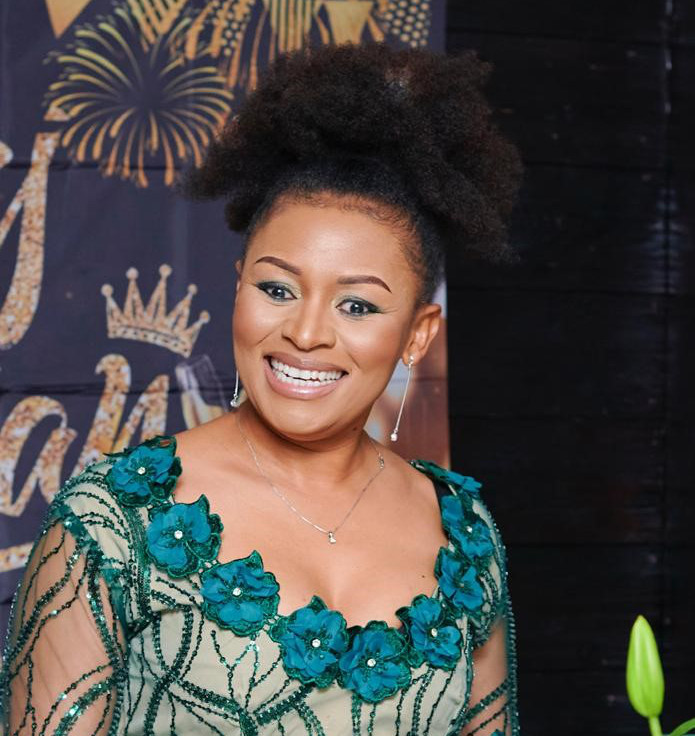
As a young woman, while pregnant and having dropped out of her education, she promised herself and her late parents that she would finish her qualifications. She did just that and later started at the DBSA in 2010.
She landed the opportunity by boldly saying in her interview that, “if you’re looking for someone to stay and do one thing as your secretary for three years or five years, maybe you shouldn’t hire me, because I can’t promise you that”. The person who hired her then encouraged her to find a different job in the bank within a year, and rise up in the ranks.
She encouraged other women to not simply take what is offered, but to be bold in pursuing great things. “Does that space give you an opportunity to be the best of you? Is it enough that you are fitting into a role that is already described and you are conforming?”
Maponya has shown that doing a good job and hoping to be noticed is not always enough to get to where you want to be. “I think a lot of things that happened in my journey, happened through that attitude that I need to stand out, I need somebody to see me.”
She explained that growing up as one of eight children taught her to back herself and make herself stand out. This is also how she has pursued professional and personal dreams, such as becoming a pilot and being on a board of directors.
Beyond self-confidence, a serving mindset is at the core of her success at the DBSA. “So the skill and the knowledge that we have that we keep getting from the DBSA, it is meant for us to be able to give something, and the more we give, the more we get the satisfaction. So as professionals, our contribution to society and to the country is paramount.”
Maxoli Hlope: Leaving corporate for the development sector
The corporate world is the pinnacle of success for most in the banking world, but for Maxoli Hlope, Investment Officer of Project Finance at the DBSA, there was more to be gained in development.
Hlope grew up in difficult circumstances as the eldest of 16 children, but earned a bursary to study to become a chartered accountant. At the time, she wasn’t quite sure where this would take her, but a high school teacher had encouraged her to pursue the career. “I was looking for a getaway ticket,” she says.
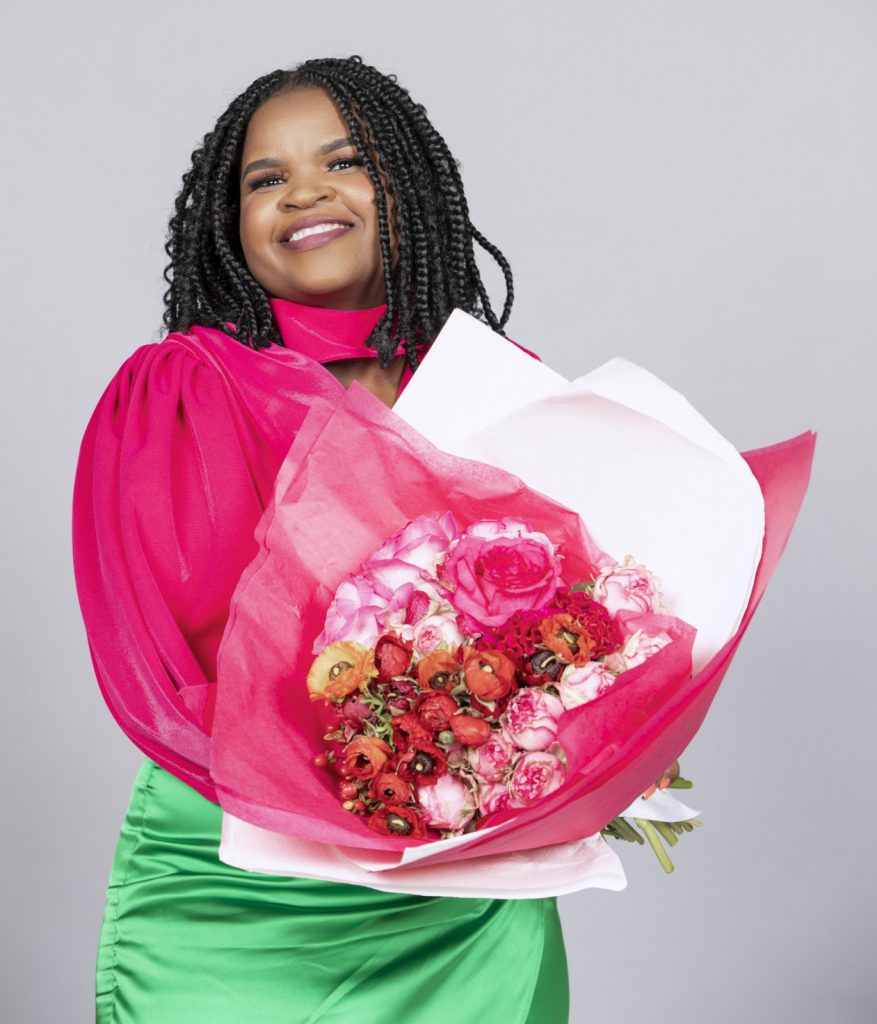
After completing her articles, she started a career in personal banking at Standard Bank and rose up the corporate ladder. Despite this, she says she felt like there’s something missing and that she wasn’t in the right place. “I’m just looking to do something more than what I do. I don’t see how I’m changing or impacting the world in my small way.”
A mentor connected her with various people, which helped Hlope realise she would like to work in the public sector. At this point, she discovered the DBSA, and got a job as a turnaround specialist. “God has just answered my prayers, because I didn’t know where I fit in and now I’m getting this opportunity to rotate to different divisions and see where I fit in.”
In this way she switched directions in her career, but was also able to discover what she truly wanted to do and be entrusted with responsibility in these fields. “I love my job and I love waking up in the morning.” She said: “Where we come from shouldn’t define us and we should go for what we want, even if sometimes you might face rejection.”
——————————————————————————————————————————————————————————————–
DBSA helps to finance green projects
Since its establishment in 1983, the Development Bank of South Africa (DBSA) has rapidly advanced to become one of the crucial catalysts in the transition to a green economy.
One of the greatest challenges faced by many governments is how to green the current economy so that it remains resilient and globally competitive. The UN’s Sustainable Development Plan has also put pressure on countries, including South Africa, to respond to global goals and targets by 2030, with South Africa targeting clean energy, low-carbon transport, smart water, the circular economy and smart agriculture. But to do so requires substantial finance, and depends largely on the ability of development finance institutions such as the Development Bank of Southern Africa (DBSA) to leverage available resources to attract private investment.
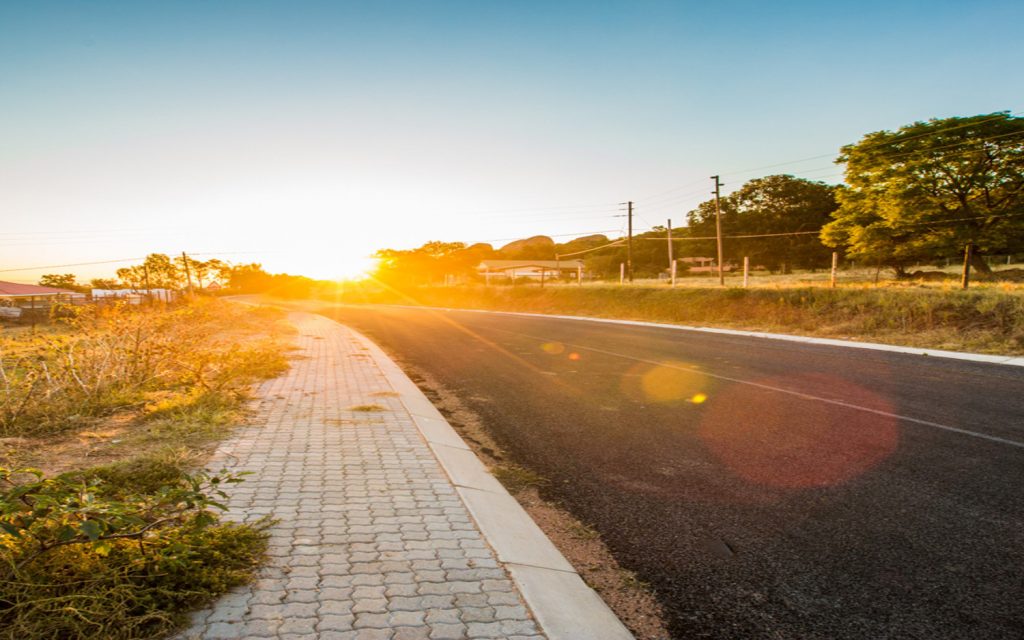 The greening of South Africa’s economy requires substantial financing, which depends heavily on the ability of development finance institutions such as the DBSA
The greening of South Africa’s economy requires substantial financing, which depends heavily on the ability of development finance institutions such as the DBSA
The DBSA works across sub-Saharan Africa to promote economic and social development, by sourcing and providing mostly infrastructural financing. Climate change has become increasingly important, and as such one of its priority focus areas is climate finance. According to Olympus Manthata, Head of Climate and Environmental Finance, the ability to mobilise climate finance at scale requires innovative approaches such as the DBSA’s Climate Finance Facility (CFF).This is a climate-related lending facility, which is a first in Africa and is based on the “Green Bank” model.
The CFF uses a blended finance approach, which essentially combines public finance with private finance to address market constraints and fill market gaps. These funds are for private projects that have potential but cannot currently attract market-rate capital at scale without credit enhancement. The DBSA bridges this gap and catalyses private funding by co-funding alongside developmental and private sector financial institutions, with the aim to achieve a 1:5 leverage.
The initial debt funding of R2-billion in use by the DBSA is a rand-denominated facility and directed purely at co-funding private sector projects in South Africa, eSwatini, Lesotho and Namibia — countries in the common monetary union. It brings credit enhancement products in the form of a first loss or subordinated funding and tenor extension of up to 15 years, combined with concessional funding provided by the UN’s Green Climate Fund (GCF).
Development of climate facilities
The DBSA with support from the GCF is currently developing various climate facilities such as the National Water Reuse programme, which it aims to finalise in the last quarter of this financial year. The DBSA will thereafter submit a funding proposal for $150-million to the GCF for the concessional part of the finance facility, and the bank aims to contribute significant co-financing for further credit enhancement.
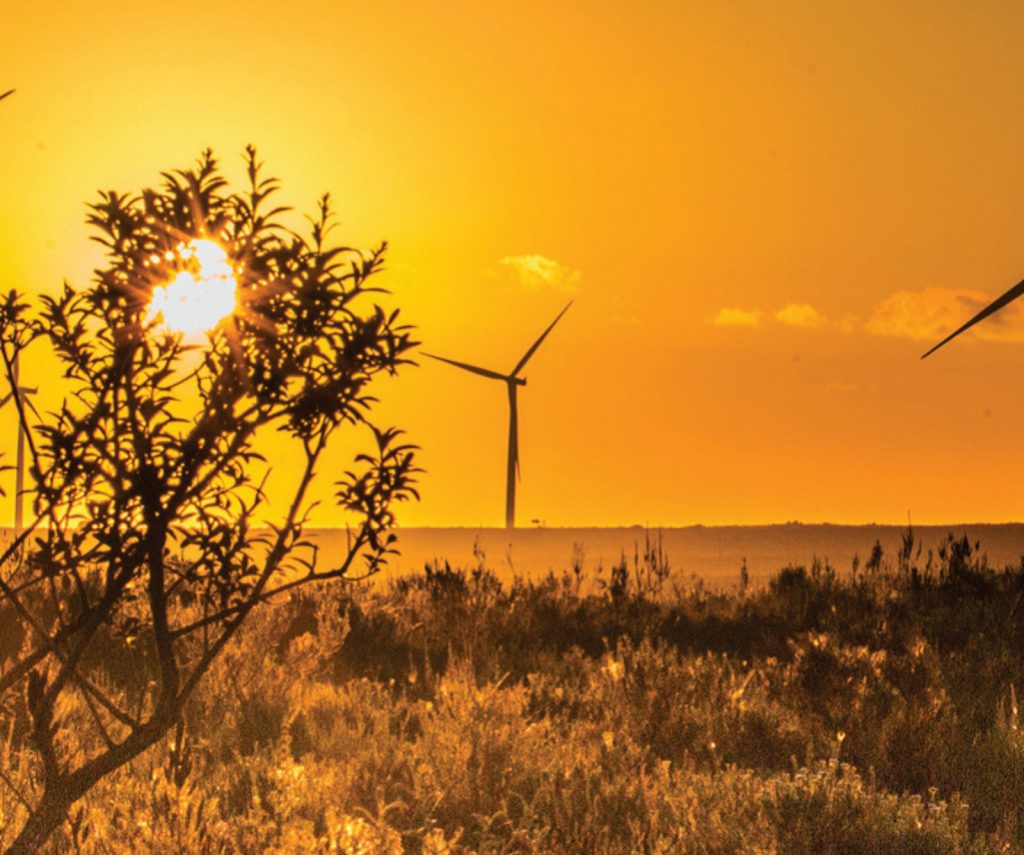
“The package we are designing is aimed at making water reuse projects bankable. Water tariffs often limit the way in which water is costed; our solution is to target new and existing wastewater treatment plants that either need to be upgraded or expanded, and increase municipalities’ awareness of how to treat effluent water for reuse,” said Manthata.
“We are also taking a comprehensive approach, because there is a tendency to look at such projects in isolation. However municipalities generally experience the same challenges, and there are many lessons and benefits for all that partake in the programme. And, with a single programme in use, transaction costs will lower.”
This proved to be the case with the renewable energy programme, once financiers became more familiar and comfortable with the conditions of the contracts.
About 56% of South Africa’s wastewater plants are in poor or critical condition, said Manthata. The DBSA believes that it will take between 20 and 30 years to correct this, but again, it is going to require public and private sector buy-in. “If we can change the negative perceptions around water reuse, that it is not a wasted resource but has the ability to produce energy, and that its sludge has value, for example, the resulting revenue streams generated can potentially be used to finance other climate mitigating projects.”
DBSA’s role in key infrastructure development projects
Further credibility for the DBSA’s role in such projects comes from its playing a key role in developing the market for Independent Power Producers (IPPs), through the Renewable Energy Independent Power Producers Programme (REIPP). The bank has already invested R12.4-billion into 14 REIPP projects, of which R2.5-billion was funding support for nine BBBEE entities and 15 local community trusts.
The bank is also looking at investing in the country’s Embedded Generation Investment Programme (EGIP) to the tune of $84-million, directed at BBBEE organisations and local community SMMEs that are specifically focused on renewable energy. “EGIP is transformational in that it will add more than 450MW of new generating capacity, which in turn directly avoids more than 700 000 tonnes of carbon emissions per annum,” said Manthata.
Green Bonds
Yet another of DBSA’s tasks is to manage The Green Fund on behalf of the Department of Forestry, Fisheries and the Environment, which allows the bank to provide access to funds for low-carbon and climate-resilient development. The Fund had an initial allocation of R1.1-million for disbursement, for use as complementary funding for green projects and programmes. To further enhance the DBSA’s role and commitment to climate change efforts, it also issued its first Green Bond in February through a private placement with French development finance institution, the Agence Française de Développement (AFD), with whom the bank has concluded many successful infrastructure financing facilities. Worth R3.59-billion, the bond will help finance domestic projects that will contribute to the green economy.
“The DBSA Green Bond issuance will be applied to projects that contribute specifically to climate mitigation and/or adaptation, aligned to the National Development Plan and sustainable development goals,” confirmed Manthata. “This inaugural issue is, however, intended primarily to refinance select renewable projects under the REIPP, but future issuances will also include wind, solar, small-scale hydro and certain biomass energy projects.” — Content supplied by DBSA –
For information visit www.dbsa.org
The DBSA Green Bond
The DBSA Green Bond is recognised as the first bond issuance where a South African issuer has issued bonds in Euroclear France. The DBSA green bond is a type of infrastructure financing instrument exclusively applied to finance or refinance eligible green projects — essentially projects that contribute to environmental sustainability.
According to Mohan Vivekanandan, Group Executive: Client Coverage at the DBSA: “The Green Bond is used to finance projects that contribute to climate mitigation and/or adaptation; that are aligned to South Africa’s National Development Plan objective of an environmentally sustainable and equitable transition to a low-carbon economy; and that are aligned to the UN’s Sustainable Development Goals.
“It is an attractive infrastructure financing instrument for impact investors. It is intended primarily to refinance select renewable projects under South Africa’s Renewable Energy Independent Power Producer Procurement Programme (REIPPP)”, Vivekanandan concluded. For future issuances, other renewable energy projects, including wind, solar, small-scale hydro and certain biomass energy projects would qualify.